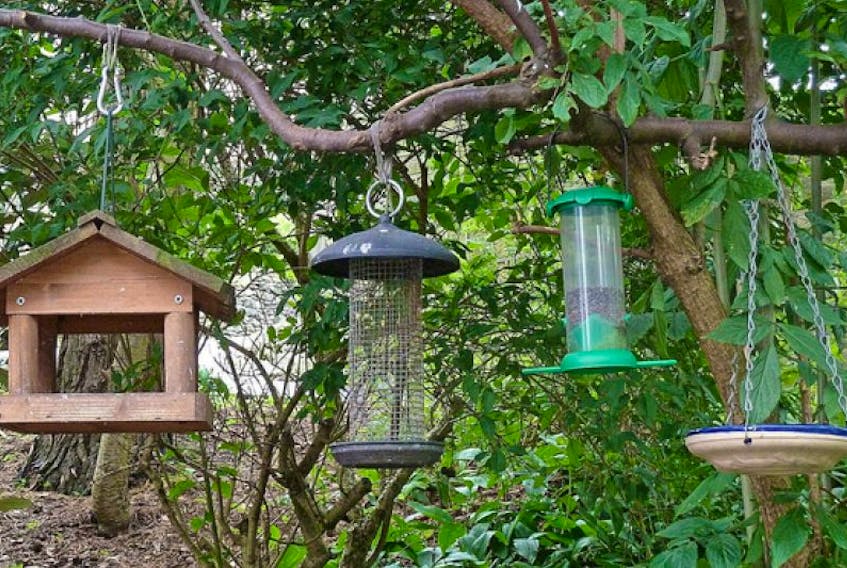Avian parasite trichomoniasis, which affects mainly finches, is a contagious throat infection that makes it impossible for birds to swallow.
“It’s one we are really concerned about,” said noted Port Maitland, Yarmouth County, birder Bill Curry, who is a member of the Nova Scotia Bird Society. “It’s usually the kind of disease that shows up once and awhile but in a really small spot, but this year is very different. This time its spread over three provinces. That’s why we’re saying take down the feeders.”
The disease affects mainly gold and purple finches, which are very common birds that show up at feeders, said Curry. The disease is carried in the saliva of infected birds, who basically drool on the feed spreading it to other birds. The disease can spread to other species.
Curry said there have been reports of the disease in Cape Breton, northern mainland Nova Scotia, P.E.I. and New Brunswick. “We haven’t seen it yet in this end of the province or in the valley,” he said.
The bird society is also advising people to disinfect their bird feeders and baths before using them again.
“It doesn’t have to be for very long,” said Curry. “Four to six weeks. When there’s no feeder the birds disperse and find scattered food sources and don’t get infected,” while Mother Nature takes its course with the infected birds.
Curry noted that a lot of people are complying with the call.
“You don’t really need to feed them in the summer time anyway. It just makes us feel good to see them,” he said. “People worry they won’t come back but they do. They come back as soon as you put the feeders up.”
BY KATHY JOHNSON









